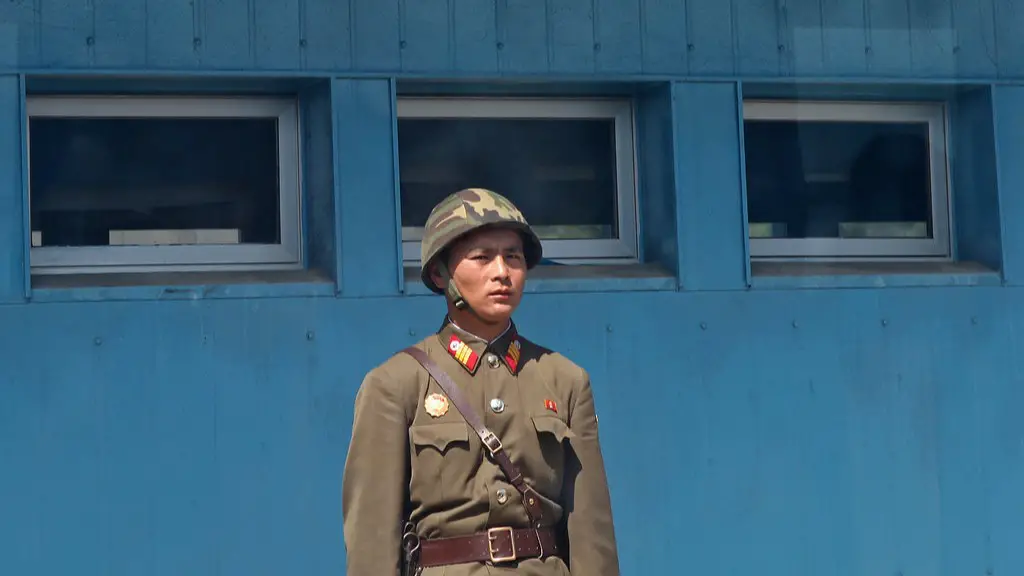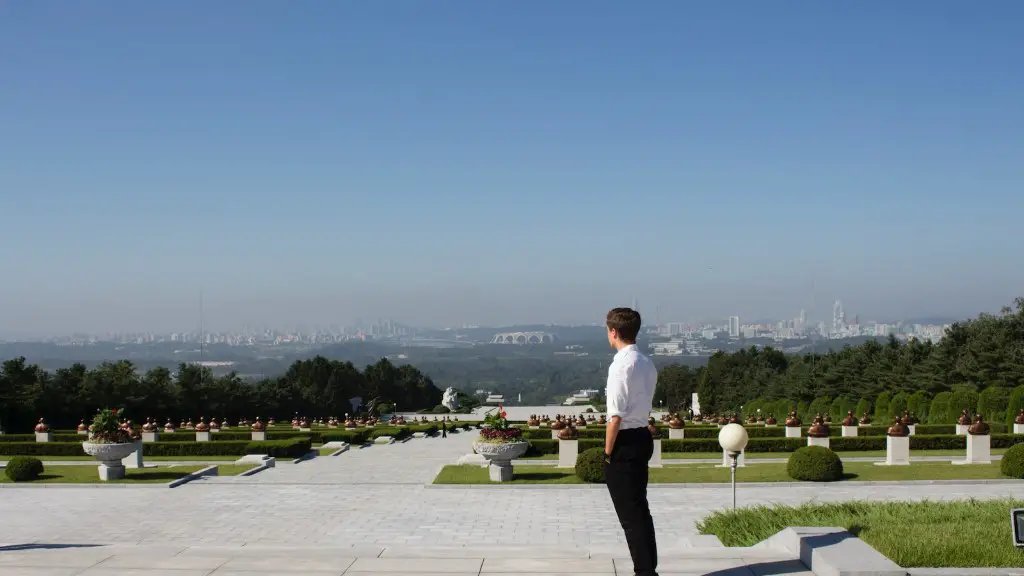Background Information
North Korea has been in the international spotlight for decades due to its nuclear ambitions and its often aggressive rhetoric. It is widely believed that North Korea has developed or is close to developing a nuclear weapons arsenal. North Korea refuses to confirm or deny its nuclear capabilities, maintaining an official policy of “nuclear ambiguity”. This has led to a variety of opinions on the matter, with some experts arguing that the country has already developed a significant nuclear arsenal, while others believe that the country may simply be trying to leverage its nuclear capabilities in order to gain leverage in international negotiations.
North Korea’s Nuclear History
North Korea began its nuclear weapons program in the early 1960s in response to the threat of a U.S. and South Korean invasion. This was a time when the Cold War and the Vietnam War were at their height. In 1967, North Korea became the first country outside of the former Soviet Union or the countries of Europe to join the Nuclear Non-Proliferation Treaty. However, North Korea’s nuclear activity continued, and in October 2006, it conducted its first underground nuclear test. Since then, several other tests have been carried out, with North Korean officials claiming in 2017 to have successfully tested a hydrogen bomb.
Experts Perspectives
The exact number of nuclear weapons possessed or under development by North Korea is not known, but some estimates suggest that it could be as high as 60. This is a major concern for experts, who worry that the country could use such weapons against its neighbors in the event of a conflict. Some experts have also raised concerns that these weapons could be passed on to other countries or non-state actors, with potentially devastating consequences.
Threat to Global Security
The proliferation of nuclear weapons in North Korea poses a major threat to global security. North Korea has engaged in regional provocations in the past, and with nuclear weapons in its arsenal, the risk of a conflict escalating to a nuclear level is far higher. This is especially true in East Asia, where several countries possess their own nuclear arsenal or are in close proximity to each other. The fear of nuclear war has led to a build up of conventional military forces in the region as well, leading to an arms race between North Korea and its neighbors.
International Sanctions
Due to its nuclear activities, North Korea has faced international condemnation and a variety of sanctions from the United Nations, the United States, and other countries. These sanctions have been aimed at curbing the country’s nuclear weapons program, but North Korean officials maintain that the country is developing nuclear weapons for defensive purposes and will not negotiate away its nuclear capabilities.
Analysis and Insight
North Korea’s nuclear weapons program is highly concerning and presents a truly daunting challenge for the international community. A diplomatic solution seems unlikely at this point, as North Korea has made it clear that it will not negotiate away its nuclear capabilities. This leaves only one option – the use of military force to disarm the country. This is far from ideal, as it could lead to significant destruction, death and instability in the region. The most prudent course of action at this point may be the continued use of sanctions and other economic measures to put economic pressure on the North Korean regime and possibly convince them to abandon their nuclear program.
Risk of Accidental Use
In addition to the risk of a deliberate nuclear strike by North Korea, there is also the risk of accidental use of its weapons. This could potentially be triggered by a miscalculation or misunderstanding of the intentions of its neighbors, which could quickly escalate into a conflict. This is a significant concern, as the consequences of such a conflict would be profound and far reaching.
U.N. Resolutions
In response to developments in North Korea, the United Nations has adopted a variety of resolutions aimed at curbing the country’s nuclear program. These resolutions call for sanctions and other restrictions on North Korea, as well as for the country to comply with international non-proliferation norms. However, the success of these measures has been limited, and North Korea continues to pursue its nuclear ambitions.
North Korea’s Intent
The ultimate goal of North Korea’s nuclear program appears to be twofold. On the one hand, it seeks to deter external aggression from its neighbors, particularly the United States, by demonstrating that it has the capability to launch a devastatingly effective nuclear strike. On the other hand, it hopes to use its nuclear capabilities as leverage in negotiations in order to receive assistance and concessions. This is reflected in its deliberate policy of ambiguity and its refusal to either confirm or deny its nuclear capabilities.
Impact of U.S. Policy
The United States and North Korea have a long and complicated history, and the former has played a significant role in shaping the latter’s nuclear ambitions. The United States has placed a variety of economic sanctions on North Korea in an attempt to curb its nuclear program, but this has been met with mixed results. The Trump Administration has taken a tougher stance towards North Korea, engaging in a war of words with the North Korean leader and increasing pressure on the country through sanctions and other measures.
Potential For Diplomacy
Despite the heightened tensions between the two countries, there may still be potential for some limited diplomatic progress. North Korea has expressed a willingness to discuss denuclearization, but only if certain conditions are met. This includes the withdrawal of U.S. troops from the Korean Peninsula and a guarantee of regime security for the North Korean government. This has been met with resistance from the United States, but there is still potential for an agreement to be reached that could pave the way for the eventual disarmament of North Korea’s nuclear arsenal.
International Negotiations
The United Nations, along with the United States and China, have been involved in negotiations with North Korea in an effort to resolve the crisis. The most recent round of talks ended without an agreement, and North Korea has since continued to develop its nuclear capabilities. There have been some glimmers of hope, however, with the two countries expressing willingness to resume talks in the near future. It remains to be seen how successful these negotiations will be in defusing the crisis, but it is hoped that a diplomatic solution can be reached without resorting to the use of force.



